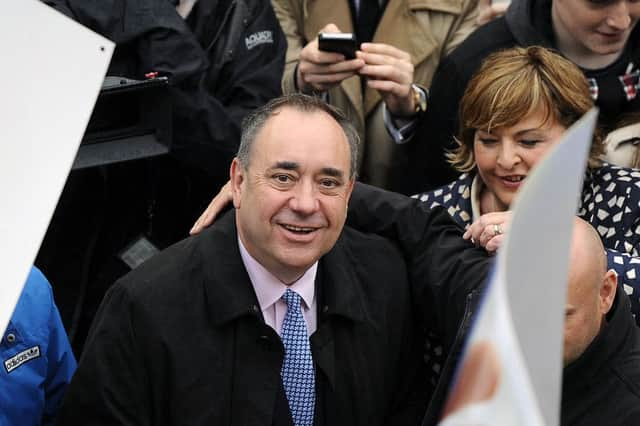David Torrance: Salmond made independence possible


It has sometimes been said that governing men enjoy an “endless adventure”, a phrase that perfectly captures the career of Alex Salmond, perhaps the most significant politician to emerge from Scotland in the past three decades.
He will turn 60 at the end of this year, which is easily the most momentous of his long political career – and indeed one of the most eventful in the modern history of Scotland. Although the Yes campaign recently made strenuous efforts to separate the man from its independence vision, the two are irredeemably linked in the minds of Scots.
Advertisement
Hide AdAdvertisement
Hide AdTestament indeed to what history will no doubt judge as his main achievement – delivering a consented referendum on Scottish independence – but also his ultimate failure. It was, however, a pretty noble one: nearly 45 per cent of Scots backed the idea of Scotland starting anew (or rather, mostly anew) in the referendum, a much higher level than would have seemed possible when Salmond was elected SNP leader in 1990.
At that point, when the National Movement appeared to the established parties as a small, insignificant force, even Salmond’s election as First Minister in 2007 would have appeared unlikely. A Scottish Parliament was not yet an inevitability, as it became following New Labour’s landslide election victory and subsequent constitutional reforms in the late 1990s.
Yet Salmond did not excel as the Scottish Parliament’s first Leader of the Opposition and in a surprise move he resigned as SNP leader in 2000, ironically spending the next four years at Westminster rather than in the fledgling devolved legislature in temporary accommodation in Edinburgh’s Old Town.
He returned, triumphantly, to save the SNP (as some saw it) four years later, taking trademark gambles in contesting a hitherto safe Liberal Democrat seat and also proclaiming his intention to become First Minister. It paid off, by a whisker, and after four successful years leading a minority administration Salmond pulled off a surprise majority win, something apparently believed impossible under Holyrood’s electoral system.
Salmond was a natural First Minister, a talented showman who enjoyed the trappings of office but also worked phenomenally hard, expecting the same of his advisers. He inspired extraordinary loyalty among his staff, despite his occasionally volcanic temper. After two election victories his authority as SNP leader was unparalleled.
His political talents were more tactical and strategic than policy-orientated, although he had a formidable understanding and enthusiasm for energy policy.
What of his legacy? Making independence not only credible but possible, indeed tantalisingly so when the opinion polls narrowed so dramatically two weeks ago. That he didn’t succeed almost doesn’t matter, for he has left so much for his successor to take forward.
l David Torrance is a biographer of Alex Salmond